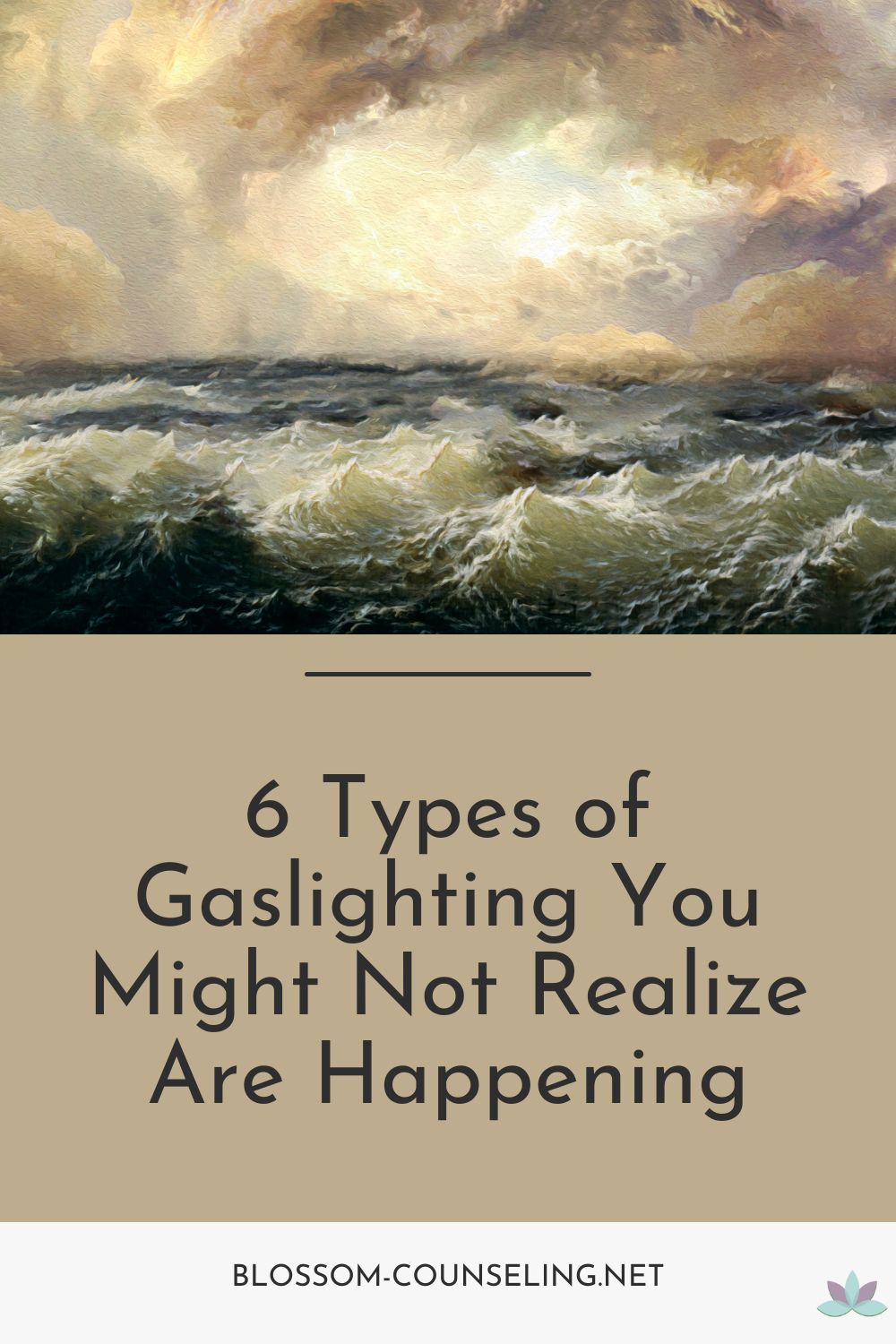 Gaslighting isn’t always loud or obvious. It doesn’t have to sound like someone calling you “crazy.” Sometimes it’s quiet. Polite. It can even sound like concern or look like love. And that’s exactly what makes it so confusing.
Gaslighting isn’t always loud or obvious. It doesn’t have to sound like someone calling you “crazy.” Sometimes it’s quiet. Polite. It can even sound like concern or look like love. And that’s exactly what makes it so confusing.
At its core, gaslighting is emotional manipulation that makes you doubt your own reality. You start second-guessing your memory, your feelings, your instincts—sometimes even your sanity. Most people think of gaslighting as something that happens in romantic relationships, but it can happen anywhere: in families, friendships, or even at work. And it rarely looks the same twice.
Let’s break down some of the ways gaslighting can show up, so you can recognize it even when it’s subtle.
1. The “Kind” Gaslighting
This one’s tricky because it comes wrapped in something that sounds caring. You might hear:
“You’re too sensitive, I was just trying to help.”
“I only said that because I care about you.”
It sounds nice, but it leaves you questioning yourself—your reactions, your feelings, your needs. Kind gaslighting plays into your desire to be supported while quietly teaching you to distrust your own emotions.
2. The Rewrite
This happens when someone insists your version of an event didn’t happen—or happened differently. You might hear:
“That’s not what I said.”
“You’re remembering it wrong.”
Over time, you start wondering if you imagined it. This kind of gaslighting slowly chips away at your confidence in your own memory. When someone keeps rewriting your shared story, it’s not about forgetfulness—it’s about control.
3. The Blame Shift
You bring up something that hurt you, and suddenly you’re the one being blamed.
“If you weren’t always so negative, I wouldn’t get so frustrated.”
“Maybe I snapped, but you made me do it.”
Instead of taking responsibility, they twist things until you end up apologizing for their behavior. It’s exhausting, confusing, and unfair—and it’s gaslighting.
4. The Gaslight by Omission
Not all gaslighting involves lies. Sometimes it’s about what’s left out.
Someone might “forget” to tell you something important, leave out details, or downplay something that really matters. You end up feeling confused and blaming yourself for not understanding what’s going on.
When people withhold information on purpose, it’s a way to keep control while making you question your own awareness.
5. The Public vs. Private Self
This one hurts the most. Someone treats you one way in private—cold, critical, controlling—but turns on the charm in front of others.
You start thinking:
“If they were really that bad, wouldn’t other people notice?”
“Maybe I’m overreacting.”
That mismatch between how someone acts publicly and privately can make you feel invisible and unheard. And that’s exactly how gaslighting keeps its power.
6. The “Therapized” Gaslighting
This is the modern twist—someone uses therapy language to invalidate you. You might hear things like:
“You’re projecting.”
“You’re just triggered.”
“That’s your unhealed trauma talking.”
These phrases might sound insightful, but when they’re used to shut you down instead of connect, it’s manipulation. You’re not being “too emotional.” You’re reacting like a human being who deserves to be heard.
Why Naming It Matters
Gaslighting isn’t just about lies—it’s about losing trust in your own inner voice. The more it happens, the easier it is to question yourself and the harder it becomes to feel grounded in what you know is true.
Learning to recognize these patterns helps you start separating their story from your reality. It’s how you begin finding your way back to your own clarity, confidence, and peace.
You’re not crazy. You’re not too sensitive. You’re someone who deserves to feel safe, believed, and respected.
Hi, I’m Angie. I work with people who are trying to hold it all together while quietly wondering why life feels so overwhelming. Maybe you’re stepping into a new chapter—college, a job, a relationship—and it’s not going the way you thought it would. Maybe you’re tired of overthinking, people-pleasing, or feeling like you’ve lost track of who you are. I get it, and you don’t have to figure it out alone.
In therapy, I help you slow down, untangle the noise, and start feeling like yourself again. Together we’ll build confidence, set real boundaries, and find ways to handle life without so much pressure or self-doubt. My goal isn’t to “fix” you—it’s to remind you that you already have the strength and clarity you need.
When I’m not in session, you can usually find me sipping a matcha latte, spending time with my dog, or enjoying the calm of fall weather.
If you’re ready to feel grounded, confident, and back in control of your own story, I’d love to meet you.



